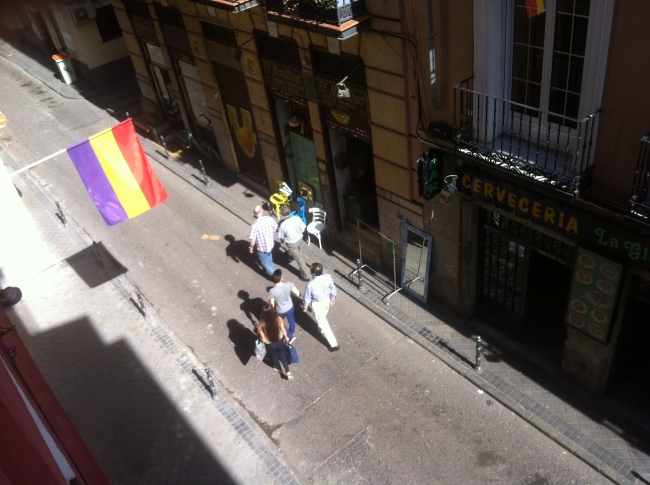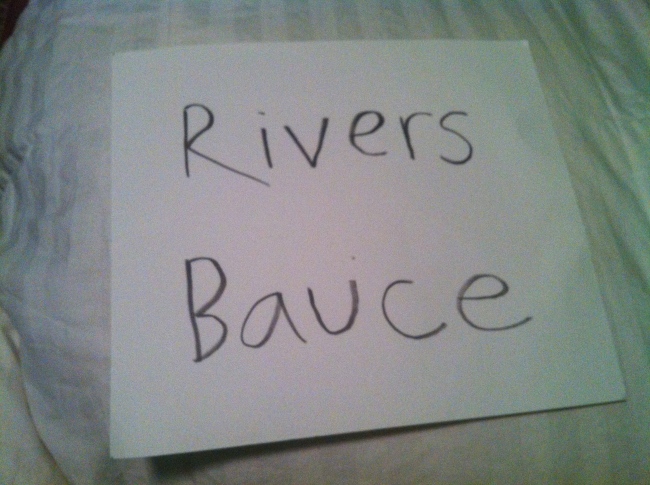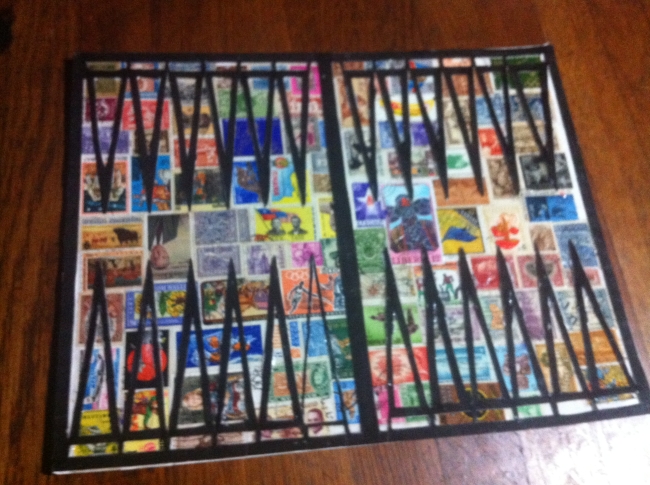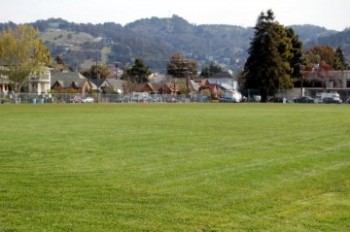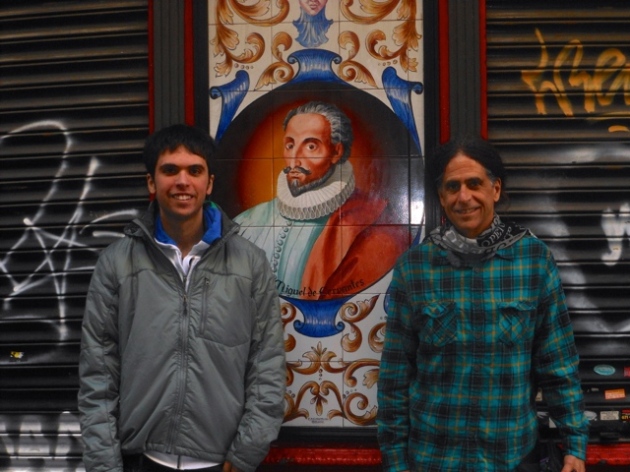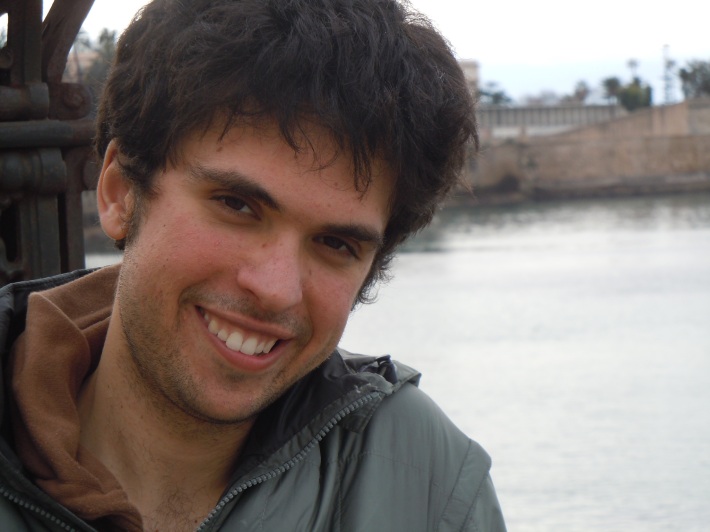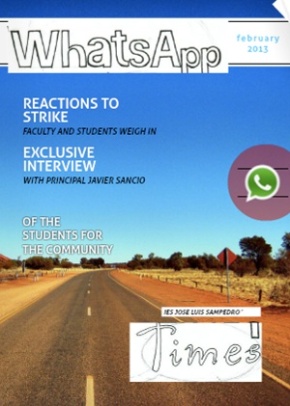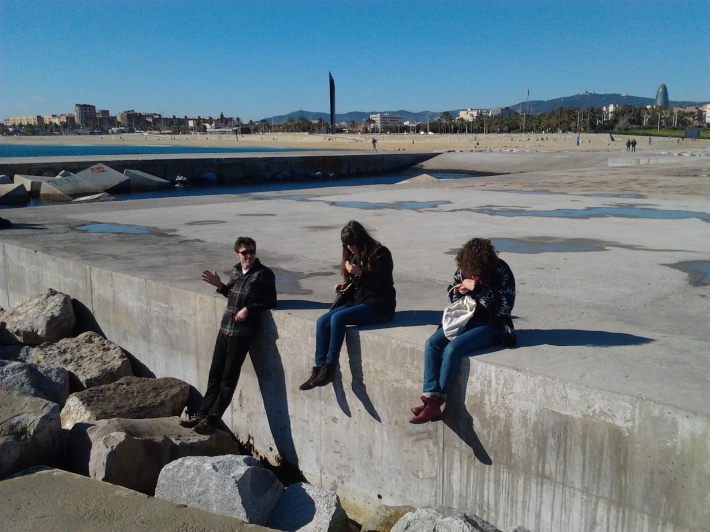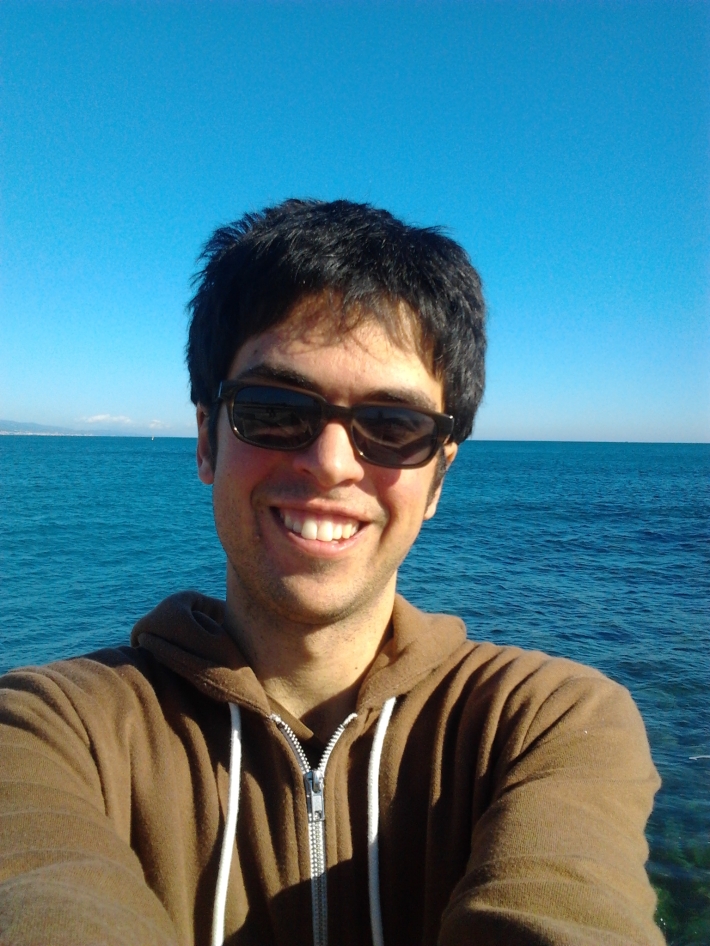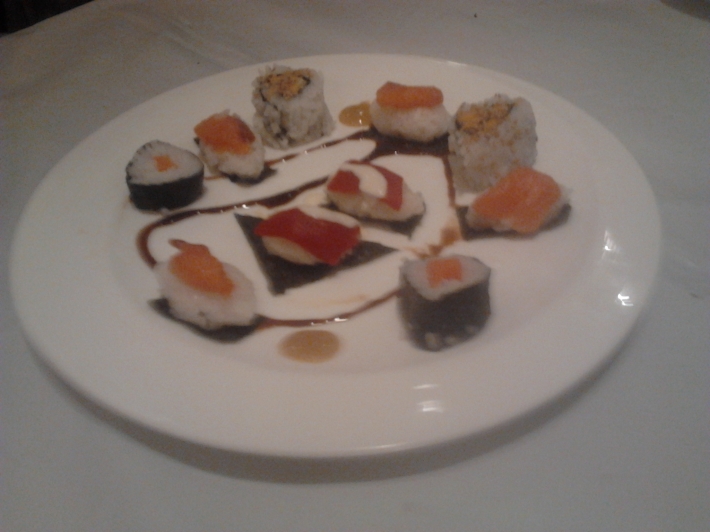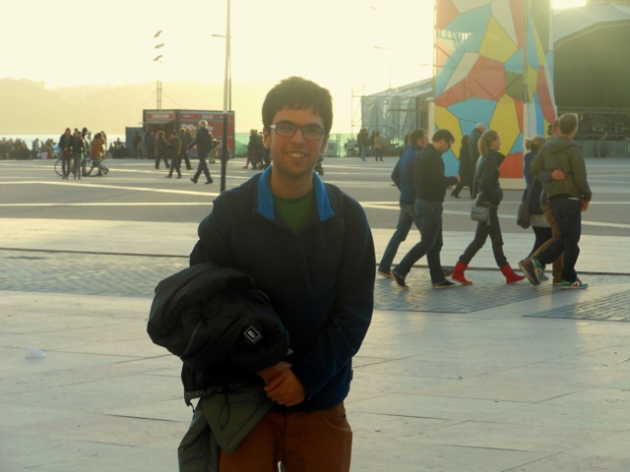“This is not the sound of a new man or crispy realization
It’s the sound of the unlocking and the lift away
Your love will be safe with me”
Around 1 PM, if you walk down the narrow, trash-lidden streets of Calle Santa Ana in the La Latina neighborhood in downtown Madrid, you will first see old men smoking cigarettes outside a local bar and talking about the strike of the garbage collectors or the young people and their cell phones. If you walk a little bit later, around 4 PM, closer to the apartments, you may hear the sweet sounds of Bon Iver’s Justin Vernon through my window. You will then realize it is siesta time.
This is a picture from my window of people walking up Calle Santa Ana, hearing my music.
For the past two years, I have been living in Madrid, in what has seemed like my entire life. Right after graduation from Pitzer, I took a plunge into Europe and have learned clarified my goals for the future: I want to be a teacher. Vernon’s poetic lyrics speak to my personal journey to find my calling. Referring to his own personal catharsis, living in his father’s Wisconsin log cabin during a period of three months, he feels that he has grown from the experience but will never forget the past.
After I graduated from college, as many other young people, I had many fears about how I wanted to live my life. Pitzer was phenomenal: I connected with many people and had a great academic experience too. I remember the last day of senior year as a saddening experience when it dawned upon me that the community I had built there with great friends and laughs would now end. Perhaps this is the number one fear of college students: that they will lose touch with their friends, but it still did not make it easier. Luckily, I have maintained connect with many of my close friends, although I can still do better.
A year and a half ago, I arrived in Madrid, a city of over three million people, in a new language community where I knew nobody. While Bon Iver’s catharsis has been music, I believe that my emotional purge has occurred in the form of the Spanish language and wanting to teach students about Spanish and perhaps politics. The ability to express yourself using new words is empowering in many ways. I came to Madrid with a low-intermediate knowledge of Spanish. Although I had spoken it for two years, I felt uncomfortable in real situations, like having a phone interview or opening up a bank account. That being said, within the first week being here, I was calling up prospective landlords for a place to live and opened my first Spanish bank account. After moving into my first apartment last year, I got really lucky with four of the coolest roommates ever – Mari, Pietro, Elena, and Prune. This month, I am going with Mari to Lisbon to visit Elena for the long weekend (Labor Day) and I am going with Pietro to Berlin at the end of the month to celebrate our birthdays (don’t forget, guys, my birthday is May 28th; address available upon request). Probably my number one goal in Spain has been to improve my Spanish and I have certainly done that. In fact, on May 24th, I will take the DELE Exam from the Instituto Cervantes for the C1 Level (Advanced).
In my spare time, I study Spanish and love getting into conversations with strangers as it provides me another layer to my abilities. This desire to learn another language is quite relatable and similar to many of my readers: Firstly, I live in California. A March 2014 Pew Research Poll reported that Latinos are the largest single racial group in the State, surpassing Whites. This will make California join New Mexico as states whose majority racial group speaks Spanish as their native language. What does this mean? Employers in California may prefer to hire workers with bilingual capabilities. Unfortunately, the US trails most of the world in bilingual education. Although “Spanish is the most spoken non-English language” in the United States, the 2009 Untied States Census indicates that only about 1/5 of Americans speak a language other than Spanish in the home. I am always impressed that Spanish students speak such good English (and typically better than their parents), thanks to the Ministry of Education prioritizing bilingual education. At my school, IES José Luis Sampedro in Tres Cantos (Madrid), the students are divided into two groups: section or program. The section kids take more than half of their courses in English, while the program kids take a few courses in English. It astounds me how high their level is. In America, we take one class in another language: foreign languages.
My second reason for wanting to learn Spanish is communicating myself better with other people. It is such a great ability to be able to communicate with people who before you learned a language, it would have been impossible. Whenever I travel back to the Bay Area, I speak with new people in Spanish. My father played a concert at the SF Public Library in Civic Center this past summer. With Josh and his friend, we went to see it. While we were waiting in line for food, I had a small conversation with a young kid and his mother from Mexico. It was amazing. Another great reason to learn another language is that you can express yourself in a different way. After all, Spanish has sometimes better words to express yourself. When you are exhausted after a long day, you can say, “Estoy espeso.” It literally means, “I am dense,” in English but really describes better how I feel after a day teaching 14-year olds: I am totally exhausted.
Aside from developing a love for Spanish, I have put my fears aside as I have decided to embark on the road to become a teacher. In Fall 2012, I was leading a class discussion on the 2012 US Presidential Elections and the lead teacher asked me if I had ever considered being a teacher. From that point on, I thought, “Hey. This is pretty fun.” Although teaching has its ups and downs, it has many ups. In August, I will start as a Teaching Assistant at the Lower School (Elementary School) of Head Royce School in Oakland. It is a private school with an enrollment of 800 students. We will see what that holds.
As I prepare for my last two months in this beautiful country in the heart of Western Europe, I feel that I have learned more about myself, about my fears, about a language, and it has been an unforgettable ride.

